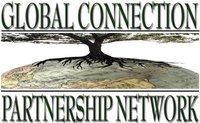The Body of Christ
United for the Great Commission
by Stan Parks
Stan Parks
 The Global Body of Christ is experiencing an unprecedented harvest while facing an increasingly complex and hostile world. An astounding upsurge in missions involvement is often counterbalanced by lack of strategy and long-term thinking. Our efforts are sometimes undermined by widespread apathy and tunnel vision as well as increasing fragmentation and lack unity in the global mission effort.
The Global Body of Christ is experiencing an unprecedented harvest while facing an increasingly complex and hostile world. An astounding upsurge in missions involvement is often counterbalanced by lack of strategy and long-term thinking. Our efforts are sometimes undermined by widespread apathy and tunnel vision as well as increasing fragmentation and lack unity in the global mission effort.It is crucial that we create a better system of communication and cooperation for the sake of God's vision. We need to knit together a more effective "Great Commission nervous system" that will allow better coordination and cooperation as the Body of Christ reaches out, especially to the untouched ones.
Those in this nervous system are people with servant hearts who share some common beliefs:
God is both the beginning and end of missions. . .
Missions was birthed in His heart as He is a Missionary God reaching out to a lost humanity. The end of missions is the worship of God as is shown in Revelation 7:9-10 : After this, I saw a large crowd with more people than could be counted. They were from every race, tribe, nation, and language, and they stood before the throne and before the Lamb. They wore white robes and held palm branches in their hands, as they shouted, "Our God, who sits upon the throne, has the power to save his people, and so does the Lamb."
The Body of Christ is both the source and goal of missions. . .
The gathered community of believers, often called the "local church," is the source of missions and, yet, that has often been forgotten in the last 200 years of the modern missions movement. At the same time, the "sent-out" church of missionaries, tentmakers, and mission teams/agencies are also a key part of the church, a truth often obscured by poor theology and a lack of communication and coordination between the "sending" church and the "sent-out" church.
The goal of missions is to see the Body of Christ birthed, expanded, living and serving holistically within a people, tribe, nation, language, and/or place. Ministry that does not see the church birthed is often valuable, but until the church is established and extended, the goal of missions has not been reached. By this criteria those groups having little or no access to the gospel are the heart of the Great Commission task today.
Key "strategic connectors/facilitators/catalysts" with servant hearts and a Kingdom of God agenda are vitally needed. Because the number of Christians and the number of churches and organizations involved in missions is growing rapidly worldwide, it is critical that we identify and better resource existing "strategic facilitators" and recruit new ones to help make the most strategic impact possible. These people can be funded and supported by a variety of churches and organizations and, yet, "seconded" to the Body of Christ to be neutral honest brokers of relationships and connections. A worldwide network of these "strategic facilitators" sharing information, knowledge and relationships could be the heart of a powerful "nervous system" that would help the Body of Christ more effectively address the Unfinished Task of World Missions.
One Scenario:
Ethnê is a global movement of leaders (3/4 non-Western) seeking to reach all the unreached people groups of the world - more than 4000 groups with 1.8 billion people with little or no access to the gospel.
for the Ethnê prayer initiative.

- an understanding of the status and progress of gospel work in each unreached people/region/city/nation in their region;
- knowing who was involved in UPG ministries in the area as well as recruiting and helping train new partners;
- serving existing efforts and catalyzing new consensus-based partnerships committed to engage each unreached population segment;
- a multiyear strategy for serving teams as they seek to evaluate and better implement their efforts;
- developing country and bloc strategy teams.
- Prayer coordination
- Researching
- Partnership Facilitation
- Strategic Development and Catalyzation
We could help by...
- working together to identify strategic team members who are already in place in each region, or placing people in these key strategic positions.
- funding the efforts of strategic teams and promoting partnership.
- building and using the prayer /communication infrastructure that will serve as a global "nervous system."
- making use of these regional teams to ensure that our own efforts are strategic as we address the unreached peoples of any given region.
Stan Parks, Strategic Catalyst SE Asia

